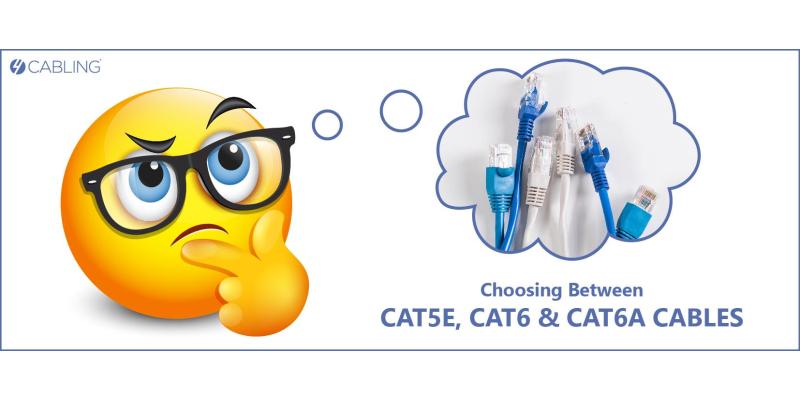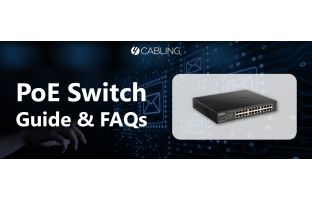What is the Difference Between CAT5E, CAT6 and CAT6A?
Even if you don’t exactly know what purpose it serves, you’ve almost certainly heard of CAT cables.A CAT cable is the trusty cable that connects your device to the internet. The CAT stands for category (rather than anything feline-related). While there are numerous different types of CAT cables, they are all a standardised form of twisted pair Ethernet cables. The exact category of a CAT cable is determined by the standards that they meet during assembly.
These standards determine the overall performance capabilities and functions of the cable, from bandwidth to transfer speeds.
What is the difference between CAT5 and CAT6 cables?
As an older type of cable, the CAT5 cable has some notable differences when compared to the newer CAT6 cable That is not to say it’s a clear-cut case that one is superior to the other. While CAT6 cables are newer and offer greater transfer speeds and bandwidth, CAT5 cables are often a perfectly reasonable and more economical choice for smaller networks that don’t require high transfer speeds. CAT5 cables also have the additional benefit of being easier to install.
To put numbers to these differences, here is a comparison of their specifications:
| CAT5 | CAT6 |
| Frequency of 100MHz | Frequency of 250MHz |
| Supports data transfer speeds <100Mbps | Supports data transfer speeds < 10Gpbs |
| Maximum length of 100 metres | Maximum length of 100 metres |
Considering these two distinct standardisations, can CAT5 work with CAT6 networks and vice versa?
Despite their differences, CAT6 cables have backwards compatibility with previous specifications, including CAT5 networks.
What is a CAT5e cable then?
The CAT5E cable came out in 2001 as the enhanced version of the CAT5 cable (the ‘e’ in CAT5e stands for enhanced).
CAT5e cables support Gigabit Ethernet speeds of up to 100Mbps and have a bandwidth of 350MHz. They look identical to a CAT5 cable and have backwards compatibility with this older cable type.
The key difference between CAT5 and CAT5e cables is internal. The CAT5e standard is more stringent than CAT5 with the main difference being the tightness of the wire twisting. As CAT5E cables must comply with stricter standards in comparison to the CAT5 cable, they experience less crosstalk and signal interference.
Are CAT5e or CAT6 cables faster?
To answer the question ‘is CAT6 faster than CAT5e’, we have to first examine their different standards.
Here is an overview of the differences between CAT5e and CAT6 cables:
| CAT5E | CAT6 |
| Frequency of 100MHz | Frequency of 250MHz |
| Supports data transfer speeds <1000Mbps | Supports data transfer speeds < 10Gpbs |
| Maximum length of 100 metres | Maximum length of 100 metres |
As outlined in the above table, CAT6 cables are twice as fast as CAT5e cables. While both offer reliable service, CAT6 cables are often a requirement for new buildings due to the fact that they are newer and meet stricter standards.
Is a CAT6a cable worth the additional cost?
CAT6A is an even newer type of cable. The additional and tighter twisting in the CAT6a cable wiring supports greater network speeds. It is typically reserved for uses in dense networks that require heavy data use, such as those within universities and health care facilities. CAT6a cables are also commonly used in CCTV and physical security systems in addition to building automation.
What’s best for my setup?
The best Ethernet cable will depend on your network and how it is used. For home networking, it is unlikely that you will need anything above a CAT6 standard cable. For businesses, your decision will ultimately wind down to the exact needs of your network. Do you require higher bandwidth or longer reach? If either of these things apply to your network, you may want to consider investing in a CAT6a cable to ensure optimal performance.
Need more help? Get in contact!
Still unsure which CAT cable will work best for your network? Contact 4Cabling today to speak to a member of our customer service team, who will be happy to answer any of your questions and ensure that you make the right decision.






